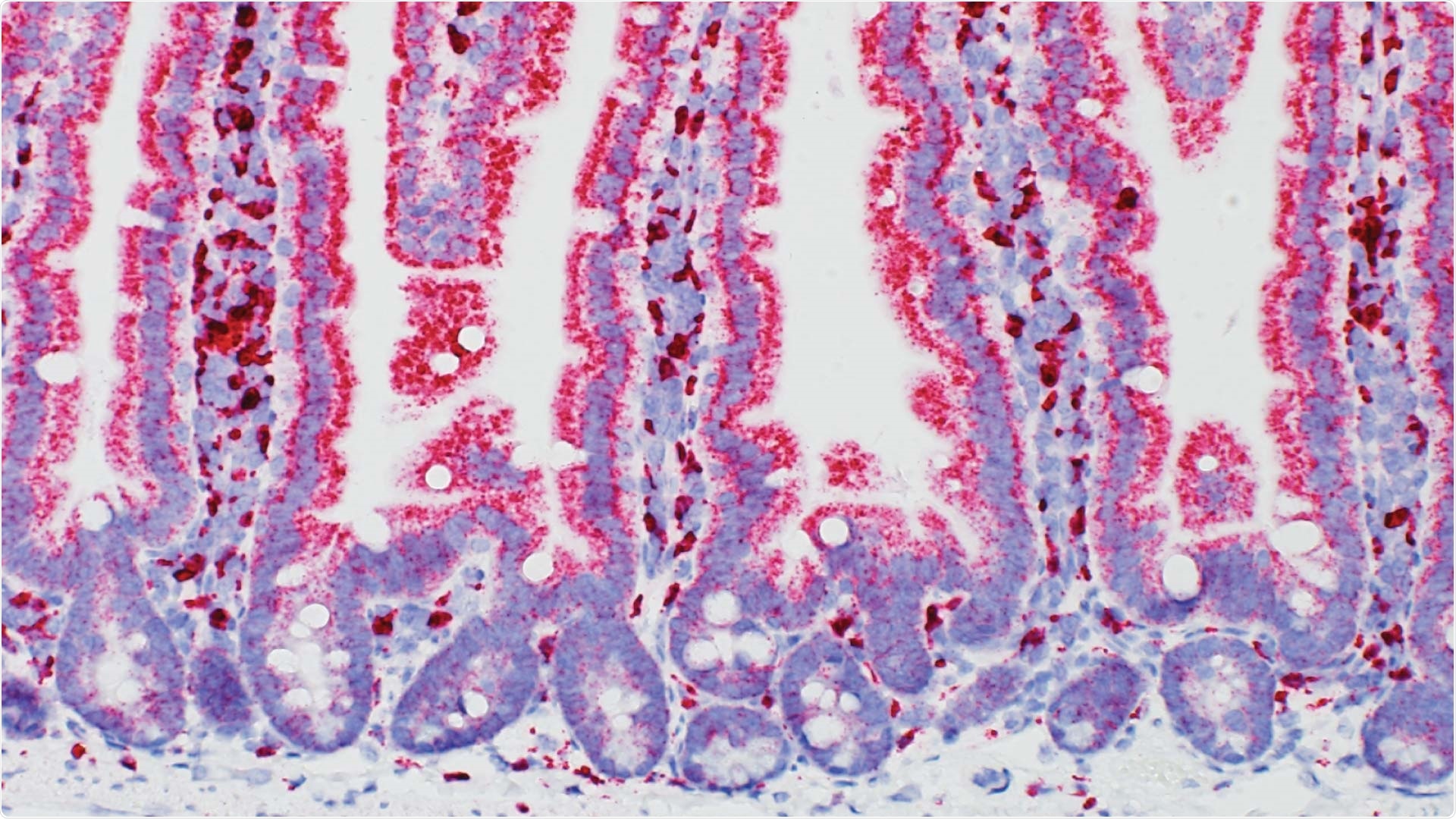Recent research states that the occurrence of colorectal cancer is increased by a high-fat diet. Cold Spring Harbor Laboratory Fellow Semir Beyaz and associates from Harvard Medical School and Massachusetts Institute of Technology found that fat interrupts the relationship between intestinal cells and the immune cells that defend them seeking emerging tumors in mice. The relationship can be mended by reconfiguring the gut microbiome.

A microscopic image of a normal mouse small intestine. Cells stained red express normal amounts of cell-surface tags (MHC-II) needed by immune cells to find threats like infections or cancer. High-fat diets reduce the levels of MHC-II tags in intestinal cells, and so the immune system has a harder time recognizing intestinal tumors. Image Credit: Beyaz lab.
The immune system safeguards tissues eradicating and watching out for threats. Some immune cells search for tags that differentiate between abnormal and normal cells. A tag, named MHC-II, helps target cells for annihilation.
MHC-II present in the cell surface triggers the immune system to eliminate that cell, regardless of it being worn out or about to become cancerous. Beyaz and his associates identified that MHC-II levels were inhibited in intestinal cells when mice were fed diets high in fat. Cells with decreased levels of these tags were not identified as abnormal and thus they possibly grow into tumors.
If we alter the level of these immune recognition molecules in a positive way, then the tumor will more likely be recognized by the immune cell. We hope this can be coupled with the existing strategies, such as immunotherapy, to eradicate tumors.”
Charlie Chung, Stony Brook University
Charlie Chung is a graduate student-in-residence in Beyaz’s lab. The scientists identified that a high-fat diet altered the mouse’s intestinal microbiome (the mixture of microbes in the gut). Numerous bacteria, including the ones known as Helicobacter, increase MHC-II, which might aid immune cells to identify abnormal cells.
The researchers performed a “dirty roommate” experiment where they housed mice without these bacteria along with ones that had it. The “clean” mice were infected with the Helicobacter bacteria and produced more of the MHC-II tag.
The observations suggest a novel process to boost existing immunotherapy treatments against cancer. According to Beyaz, increasing the production of MHC-II tag by drugs, diet, or modifying the microorganisms in the body can aid the immune system to identify and eliminate cancer cells.
This interaction between diet, microbes, and immune recognition has the potential to help us explain how lifestyle factors can contribute to tumor initiation, progression, or response to therapy.”
Semir Beyaz, Cold Spring Harbor Laboratory
Cancer cells employ numerous tricks to evade being identified as abnormal by the immune system; however, Beyaz believes he has identified numerous ways to outsmart them.
Source:
Journal reference:
Beyaz, S., et al. (2021) Dietary suppression of MHC class II expression in intestinal epithelial cells enhances intestinal tumorigenesis. Cell Stem Cell. doi.org/10.1016/j.stem.2021.08.007.